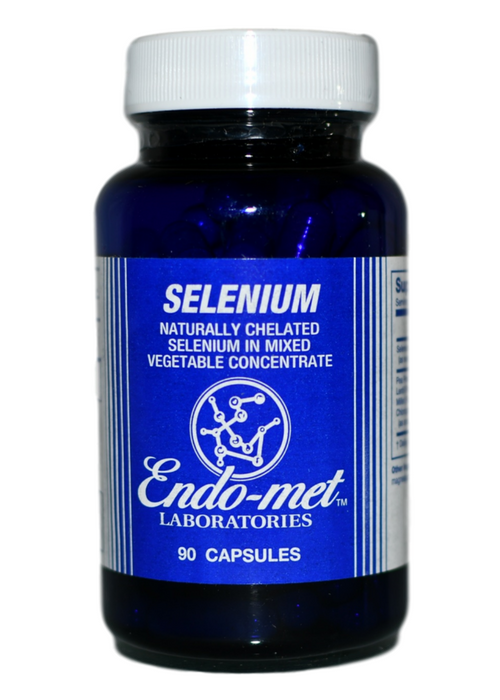Should I Take Thyroid Supplements?
Posted by on 17th Apr 2017
Should You Take Thyroid Supplements? A Comprehensive Guide
When it comes to managing your health, especially concerning your thyroid, the question of whether to take supplements is both common and complex. The thyroid gland, a small butterfly-shaped organ located at the base of your neck, plays a crucial role in regulating your metabolism, energy levels, mood, and overall hormonal balance. Given its central role, any dysfunction can lead to a wide range of symptoms and health issues.
However, before jumping into supplementation, it’s essential to understand the nuances involved, including when it might be appropriate, what signs indicate possible thyroid issues, and the importance of consulting healthcare professionals. This comprehensive guide aims to shed light on these aspects, helping you make informed decisions about thyroid health and supplementation.
Understanding the Thyroid Gland and Its Function
The thyroid gland produces essential hormones—primarily thyroxine (T4) and triiodothyronine (T3)—which influence almost every cell in your body. These hormones regulate your metabolism, control your heart rate, influence body temperature, and impact mood and energy levels.
When the thyroid produces too much hormone (hyperthyroidism) or too little (hypothyroidism), it can significantly affect your health. Symptoms of hypothyroidism often include fatigue, weight gain, depression, cold intolerance, dry skin, and hair loss. Conversely, hyperthyroidism might cause weight loss, rapid heartbeat, anxiety, sweating, and tremors.
The Role of Supplements in Thyroid Health
Supplements can play a role in supporting thyroid function, especially if deficiencies of certain nutrients are identified. Common nutrients associated with thyroid health include iodine, selenium, zinc, iron, vitamin D, and B vitamins. Deficiencies in these nutrients can impair thyroid hormone synthesis and function.

Thyroid supplements may come in various forms:
- Iodine supplements: Essential for thyroid hormone production.
- Selenium: Supports the conversion of T4 to the more active T3.
- Zinc: Important for hormone synthesis.
- Vitamin D: Deficiency has been linked to autoimmune thyroid conditions.
- Other herbal or natural formulas: Designed to support overall thyroid health.
When Might Thyroid Supplements Be Considered?
While supplements can be beneficial, they are not a cure-all and should be approached with caution. Here are some scenarios where thyroid supplementation might be considered, always under medical supervision:
1. Confirmed Deficiency of Nutrients Critical for Thyroid Function
Testing blood levels for nutrients like iodine, selenium, zinc, vitamin D, and iron can reveal deficiencies that impair thyroid health. If deficiencies are diagnosed, targeted supplementation can help restore balance and support normal function.
2. Subclinical Hypothyroidism
This condition involves mildly elevated TSH (thyroid-stimulating hormone) levels with normal T3 and T4 levels. Some healthcare providers may recommend supplements or lifestyle changes to support thyroid health, especially if symptoms are present.
3. Autoimmune Conditions (e.g., Hashimoto’s Thyroiditis)
Autoimmune thyroid disorders can benefit from nutritional support—such as selenium supplementation—alongside standard medical treatment, to modulate immune response and reduce inflammation.
4. Postpartum or Age-Related Decline
Hormonal changes post-pregnancy or with aging can impact thyroid function, and supplements might be used as part of a broader management plan.
Critical Considerations Before Taking Thyroid Supplements
Despite potential benefits, there are vital considerations:
1. Consult a Healthcare Professional
Never self-diagnose or self-prescribe thyroid supplements. Only a qualified healthcare professional can accurately diagnose thyroid issues through blood tests measuring TSH, T3, T4, and other relevant markers. They can determine whether supplementation is appropriate and safe.
2. Understanding Your Specific Condition
Thyroid health is complex. For example, taking iodine supplements in someone with autoimmune thyroiditis can sometimes exacerbate the condition. Conversely, iodine deficiency requires supplementation. Proper diagnosis is crucial.
3. Potential for Overdose or Interactions
Excessive iodine intake can lead to thyroid dysfunction, including hypothyroidism or hyperthyroidism. Supplements containing multiple nutrients should be taken with caution, especially if you are on medications or have other health conditions.
4. Quality and Purity of Supplements
Choose reputable brands that adhere to strict manufacturing standards. Be wary of products that make exaggerated claims or lack transparency about ingredients.
5. Lifestyle and Dietary Factors
Nutrition, stress management, sleep quality, and exercise significantly influence thyroid health. Supplements should complement a balanced lifestyle rather than replace healthy habits.
Recognizing Symptoms That May Indicate Thyroid Issues
Understanding the symptoms associated with thyroid dysfunction can help you determine whether you need to seek medical advice. Here are some common signs:
- Persistent Fatigue: Feeling exhausted even after adequate sleep.
- Weight Changes: Unexplained weight gain or loss.
- Mood Disorders: Depression, anxiety, or sudden panic attacks.
- Cognitive Difficulties: Memory issues, difficulty concentrating.
- Digestive Problems: Constipation or other gastrointestinal issues.
- Cold or Heat Intolerance: Feeling cold when others are comfortable or sweating excessively.
- Hair and Skin Changes: Dry skin, hair thinning, brittle nails.
- Heart Rate Changes: Palpitations, rapid heartbeat, or irregular rhythms.
- Menstrual Irregularities: Heavier, lighter, or more irregular periods.
If you experience these symptoms persistently, it’s vital to consult a healthcare professional for proper testing and diagnosis.
Family History and Genetic Factors
A family history of thyroid disease increases your risk of developing similar conditions. Autoimmune thyroid diseases, such as Hashimoto’s thyroiditis or Graves’ disease, often have genetic components. If thyroid issues run in your family, proactive screening and early intervention can be beneficial.
The Role of Lifestyle in Supporting Thyroid Health
Beyond supplements, lifestyle modifications can significantly influence thyroid health:
- Balanced Diet: Incorporate foods rich in iodine (seaweed, fish), selenium (Brazil nuts, sunflower seeds), zinc (meat, legumes), and vitamin D (fatty fish, fortified foods).
- Stress Management: Chronic stress can impact hormonal balance. Practices like meditation, yoga, and deep breathing can help.
- Regular Exercise: Promotes overall hormonal balance and metabolism.
- Adequate Sleep: Essential for hormonal regulation and immune function.
- Avoid Goitrogens in Excess: Foods like soy, cruciferous vegetables, and millet can interfere with thyroid function if consumed excessively, especially in iodine-deficient individuals.
When to Seek Medical Treatment
Supplements may support thyroid health but should not replace conventional medical treatment when necessary. If diagnosed with hypothyroidism or hyperthyroidism, your healthcare provider may prescribe medications such as levothyroxine or antithyroid drugs, respectively.
Supplements can be adjuncts but only under medical supervision. Regular monitoring of thyroid function tests is essential to ensure effective management.
Final Thoughts
Deciding whether to take thyroid supplements is a nuanced choice that depends on individual health status, nutritional deficiencies, and medical history. While supplements can support thyroid function, they are not substitutes for professional diagnosis and treatment.
Always prioritize consulting healthcare providers before starting any new supplement regimen, especially for thyroid health. Proper testing, personalized advice, and ongoing monitoring are key to maintaining healthy thyroid function and overall well-being.
